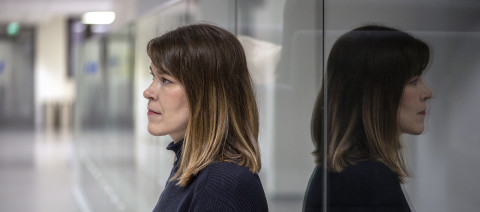Global crises, such as the coronavirus pandemic and climate change, require societies to do and think about things in a new way. In many senses, we are entering the era of “new normal”. But what does it really mean? What kind of a world should the next generation be prepared for?
Professionals in career counselling serve as a link between education and the world of work. Their role is to support individuals in the building of their educational paths, personal development and careers, which means that societal changes are always reflected on their work.
“When our society faces a new crisis, professionals in career counselling get called to rescue. In the coronavirus crisis, too, this has happened even on governmental level,” University Teacher of Career Counselling Päivi Häkkinen says, referring to recent government aid that has made it possible to hire more career counsellors to general upper secondary schools, among other things.
A crisis causes and brings about change. According to Häkkinen, it is important to stop and think about what kind of career counselling is needed in each particular situation. Could the crisis even set in motion new kind of development, instead of just repeating old patterns?
Could the crisis set in motion new kind of development, instead of just repeating old patterns?
Päivi Häkkinen
University Teacher of Career Counselling
Contradictory wishes
Häkkinen has noticed, both in her work and in her research, that when a global crisis causes societal insecurity, career counselling is expected to have an increasingly strong impact especially from the viewpoint of the national economy. However, that's when the viewpoint of the individual gets easily forgotten.
“The profitability of career counselling, too, is being tied to economic indicators, and this raises the question of whether all elements of good life can be measured in money alone. And if the answer is yes, where will that lead us?”
This is why Häkkinen calls for a more precise definition of what career counselling actually is.
“Unfortunately, it seems that career counselling professionals are seen merely as those who keep the economy going. Yet, pushing people into the labour market as quickly and efficiently as possible is not what our professional identity is solely based on.”
Career counselling that only focuses on the individual’s abilities, skills or self-design is not socially sustainable – not from the viewpoint of the individual, nor ecologically.
Indeed, determining the goals and objectives of career counselling, besides those that serve labour market needs, is currently a hot topic in the field.
“Could career counselling also have an educational mission where we could together think about the building blocks of good life also outside the context of work?”

Ecologically sustainable counselling
Educational policy is increasingly being steered by the demands and values of market economy. Demands of quick transitions and instantly correct educational choices cause pressures that can be seen, for example, as cases of burn out among students in general upper secondary education.
“In today’s world, future-oriented thinking means that everyone must take care of their competitiveness and personal brand to succeed in the labour market. Choices must be made very early and demands made too soon make young people feel exhausted.”
Today’s world of work, with all its norms and ideals, increasingly require individuals to adjust their persona and skills to the needs of global economic competition. This is why young people struggle with their career choices and identity-related problems.
If, however, we want to overcome future crises and keep the planet sustainable for generations to come, Häkkinen says that we all must pitch in for the greater good.
“We should let go of the terms imposed by competition and market driven societies, and return to ethical questions that have been, and continue to be, relevant for humanity: How can we pull through this together? What are the concrete structures that ensure that no one gets left behind? What is good and worth pursuing? What kind of communication promotes equality for all?

